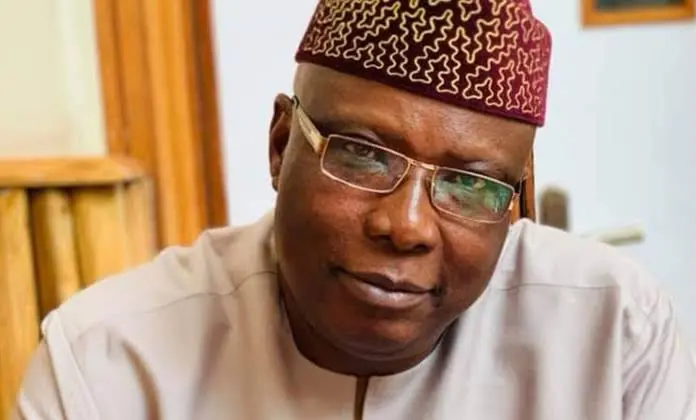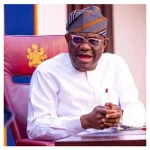Advertisement
By Babafemi Ojudu
Distinguished leaders, elders, and compatriots,
Advertisement
Today, we are gathered not as adversaries, not as competitors, but as visionaries. This is not just another political assembly—it is a historic call to action. A call to reimagine Yoruba leadership, not through slogans or sentiments, but through the deliberate building of an enduring, ideology-based movement—devoid of personal ambition, selfish interest, or transactional politics.
Let us cast our minds back to 1948, to Egbe Omo Oduduwa, a cultural renaissance movement that became the seed of one of the most transformative political formations in our history—the Action Group. Under the visionary leadership of Chief Obafemi Awolowo, the Action Group didn’t just contest elections—it conceived and implemented ideas: free education, free healthcare, rural development, regional autonomy, and social justice. It was built on ideology, discipline, and an unshakable belief in people-first governance.
But this wasn’t sustained by leadership alone. It was made possible by a class of principled followers—people who aligned not because of what they could get, but because of what they could build.
I am reminded of a story I often share—a deeply personal one. I call it:
From Receipts to Requests: A Tale of Two Generations of Political Followership
In 1996, as my grandmother lay on her deathbed at the age of 97, she sent for me. I arrived promptly, unsure of what this final moment would bring. What she handed me remains etched in my memory—a bundle of old receipts. Not land documents. Not bank papers. Receipts.
They were records of her weekly contributions to the political parties she believed in—the Action Group and later, the Unity Party of Nigeria. By 1996, those parties no longer even existed. Yet she kept those slips like sacred tokens of duty.
“Keep this,” she said to me. “You may need them someday when your children apply for scholarships. I don’t want anyone saying I didn’t make my contributions.”
Think about that: a woman who saw political participation as a moral investment, not a transaction. She paid dues from her modest resources. Not for rice. Not for cloth. Not for brown envelopes. But out of conviction.
Fast forward to 2010, when I began my campaign for the Senate. The contrast was staggering. I found a followership that had evolved—or perhaps devolved.
To get people to attend meetings, I had to pay them, feed them, transport them, give them souvenirs, and recharge their phones.
After winning, the expectations only grew. I was expected to sponsor weddings—for people I barely knew. I was called upon to roof houses, pay hospital bills, settle family disputes, fund burials, and respond to spontaneous requests at all hours—from school fees to “stomach infrastructure.”
I began to ask myself: Is this followership—or followersheep?
This isn’t just about changing political styles. It reflects a generational shift in civic consciousness.
Where my grandmother gave from belief, many today demand from entitlement.
Where she passed down receipts, many now pass on requests.
I do not share this to romanticize the past or to criticize those burdened by poverty. But I share it to challenge us to rebuild the moral fabric of our political culture.
If democracy is to thrive, we need a new generation that follows because they believe, not because they expect; that joins causes, not queues; that contributes, not just consumes.
This is the kind of followership that built the Action Group, and it’s what sustained the African National Congress (ANC) in South Africa. Forged in fire, matured in resistance, and held together by ideology, internal discipline, and a collective mission. That’s why it remains the longest-serving political party on the continent today—not because it is flawless, but because its foundation was solid and principled.
Let us also learn from Julius Nyerere of Tanzania, who led the Chama Cha Mapinduzi (CCM). He built a party on Ujamaa—African socialism, where leadership meant service, not status. Nyerere preached education, equality, modesty, and unity—and more importantly, he lived it. He led by example and walked away from power with integrity intact. His legacy outlives him.
So What Must We Do?
To build an enduring movement in Yorubaland, we must be intentional, organized, and visionary. Here are seven clear steps:
1. Articulate Our Ideology
What do we stand for?
Is it regional development, restructuring, good governance, youth empowerment, economic justice, education?
Let us write and adopt a clear ideological charter that defines who we are and what we seek.
2. Build Structure, Not Noise
Let’s establish ward, local government, state, and diaspora chapters. A movement is not tweets and hashtags—it is structures, meetings, training, outreach. We need feet on the ground and minds in motion.
3. Cultivate a Cadre of Leaders
We must train and mentor leaders—young and old—who understand our mission. From writers and teachers to mobilizers and funders, we must develop a generation that can carry this torch forward.
4. Define Roles and Responsibilities
Every one of us has a role:
• Thinkers to articulate the vision
• Mobilizers to reach the people
• Communicators to spread the message
• Organizers to build the structure
• Elders to guide
• Funders to give without expecting favors
5. Institutionalize Discipline and Democracy
Let us shun godfatherism, imposition, and political trading. Let internal democracy thrive. Let merit, capacity, and loyalty to ideals guide our choices—not sentiment or patronage.
6. Celebrate Collective Victory
We must imbibe the ethic: “If the group wins, everyone wins.”
This is not a personal project. It is a collective legacy.
No one is too big or too small. We rise together—or not at all.
7. Revive the Spirit of Receipts, Not Requests
Let us rebuild a followership that believes in sacrifice and participation—not entitlement.
Let the next generation say of us, as I say of my grandmother:
“They believed enough to give—not just to take.”
In Conclusion…
Let us not leave this room today without a decision to begin something bigger than ourselves.
Let us birth a movement so strong, so visionary, so ethically rooted, that it becomes a model for all of Nigeria.
Let us revive the spirit of Egbe Omo Oduduwa.
Let us organize with the clarity of the Action Group.
Let us endure with the discipline of the ANC.
Let us serve with the humility of Nyerere’s CCM.
Let us inspire with the moral clarity of those who gave, not for gain, but for greatness.
Let us not talk history today. Let us make it.
Thank you.
Share your story or advertise with us: Whatsapp: +2347068606071 Email: [email protected]





GIPHY App Key not set. Please check settings